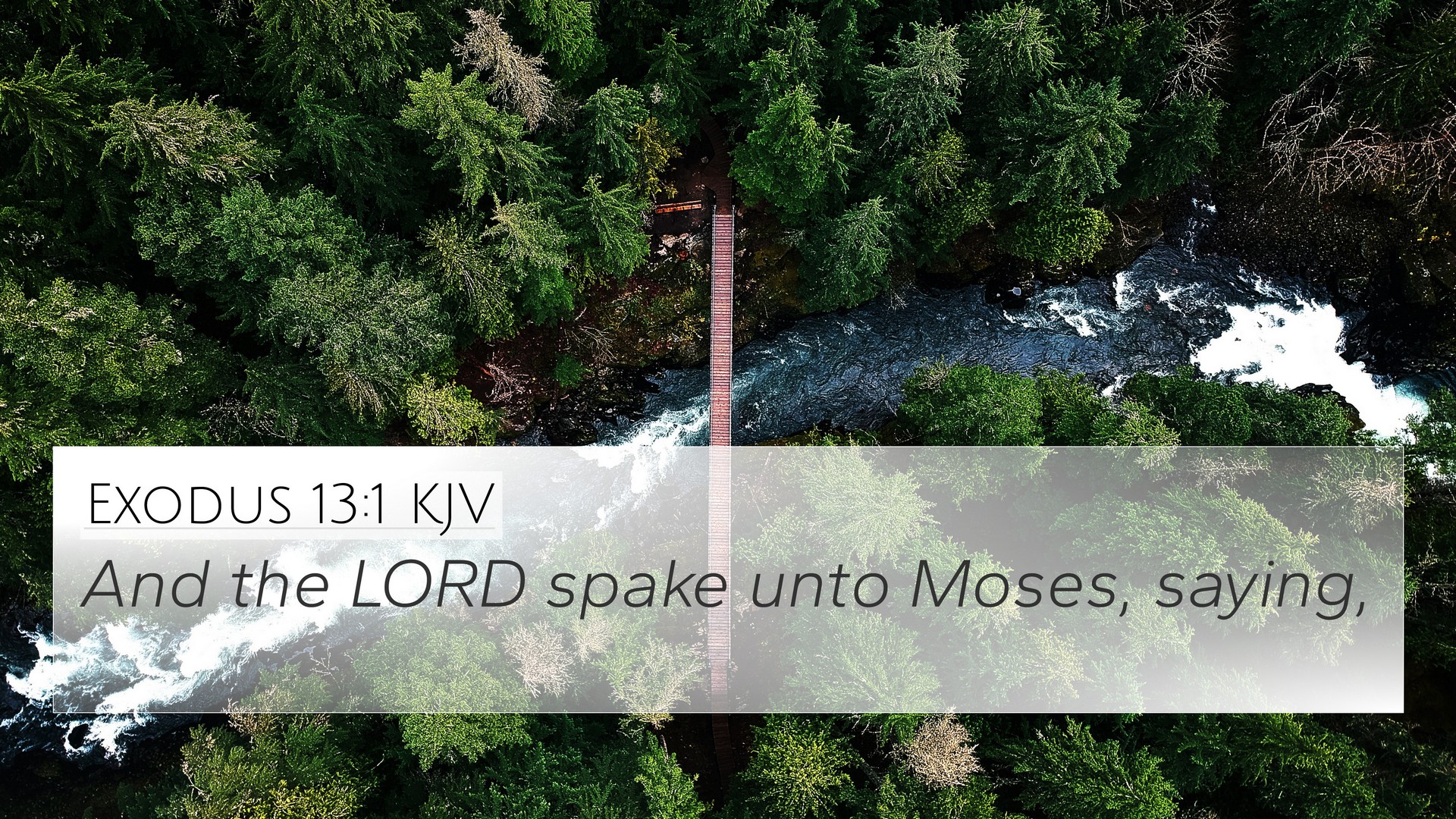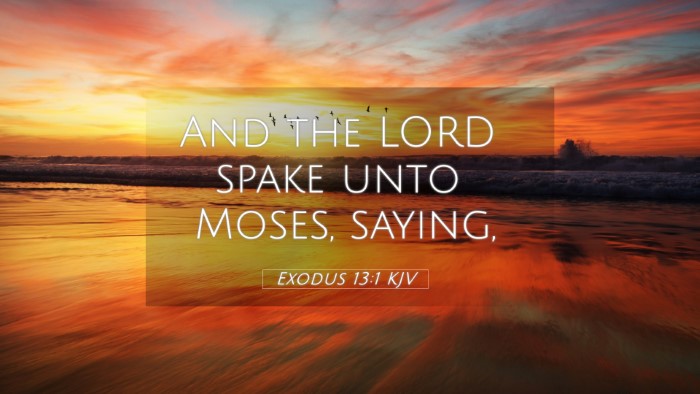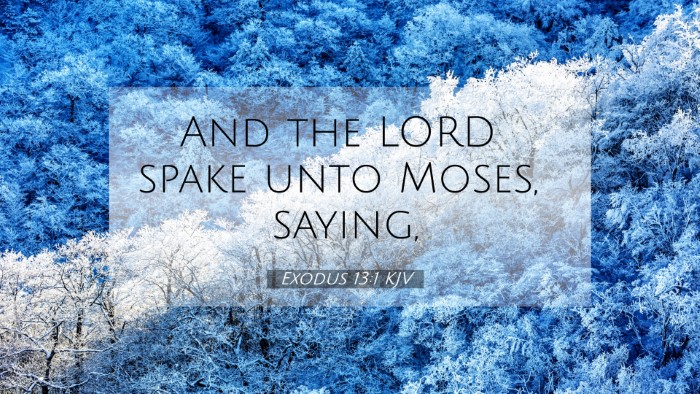Understanding Exodus 13:1
Exodus 13:1 states, "And the Lord spoke to Moses, saying," which introduces a crucial directive from God regarding the sanctification of the firstborn. This verse serves as a foundational concept in the Jewish tradition, suggesting God's claim over the firstborn and serving as a reminder of deliverance from Egypt.
Meaning and Interpretation
This verse emphasizes the importance of obeying God's commands. It symbolizes God's sovereignty and care over His people, teaching them to recognize His saving power. The allegorical understanding of these commands points toward the future fulfillment in Christ, who becomes the ultimate Firstborn.
Insights from Commentaries
-
Matthew Henry:
Henry notes that the instructions given to Moses were critical for establishing the remembrance of God’s deliverance of the Israelites from slavery in Egypt. He emphasizes the symbolic nature of the firstborn's consecration as a representation of gratitude and dedication to God.
-
Albert Barnes:
Barnes indicates that this commandment was a ceremonial law meant to impress upon the people God's sovereign right over their lives and the principle of sacrifice and redemption. It underscores the historical significance of their liberation and hints at a deeper theological connection to Christ's redemptive work.
-
Adam Clarke:
Clarke elaborates on the idea that the command to consecrate the firstborn is part of the overarching law and represents the covenant relationship God holds with Israel. He speaks to the necessity of remembering acts of salvation, linking this to the practice of giving thanks through offerings.
Thematic Connections
This verse can be cross-referenced with several other biblical texts, highlighting the recurring themes of deliverance, sanctification, and dedication to God:
- Numbers 3:12-13: God reaffirms His claim over the firstborn.
- Luke 2:23: The New Testament reference to the firstborn Jesus emphasizes the fulfillment of the law.
- Romans 8:29: Jesus as the firstborn among many brethren connects the theme of adoption and belonging.
- 1 Peter 1:18-19: The concept of redemption through the precious blood of Christ mirrors the significance of sacrifice in Exodus.
- Hebrews 12:23: References to the church of the firstborn indicate the spiritual significance of this theme in the New Testament.
- 1 Corinthians 15:20: Christ as the firstfruits of those who have fallen asleep parallels the idea of primacy in resurrection.
- Exodus 34:19-20: God reiterates that every firstborn belongs to Him, emphasizing the importance of dedication.
Cross-Referencing Biblical Texts
Using cross-referencing Bible study methods, we can observe:
- How to use Bible cross-references: By linking Exodus 13:1 with the surrounding laws and the establishment of the Passover, one gains clarity on God's expectations.
- Bible concordance: Allows readers to explore terms like "firstborn" and "consecrate" across the scriptures for thematic consistency.
- Bible reference resources: Such tools can enhance understanding of Exodus 13:1 by providing rich contexts and deeper insights.
- Cross-reference Bible study: Engaging in a structured study comparing Exodus with both the Gospels and the Epistles unveils a comprehensive understanding of the fulfillment of the law in Christ.
Conclusion
Exodus 13:1 forms a vital component of Israel's identity as a nation called to holiness and remembrance of God's mighty acts. The need for continual connections through thematic Bible verse connections, such as understanding the significance of the firstborn across both Testaments, helps believers appreciate the depth and continuity of God's plan. By studying the cross-references and utilizing tools available for cross-referencing Biblical texts, we can delve deeper into God's redemptive narrative as seen throughout the scripture.
Exploring Related Verses
To fully grasp the implications of Exodus 13:1, one can look at the following related verses:
- Exodus 13:2: Further instructions on consecration and remembrance of deliverance.
- Deuteronomy 6:20-23: The command to teach future generations the significance of the Lord's deliverance.
- Matthew 1:25: References Jesus being the firstborn in the New Testament narrative.
The insights derived from public domain commentaries and the connections established among these verses not only deepen our understanding but also enrich our spiritual journey through God’s Word.


